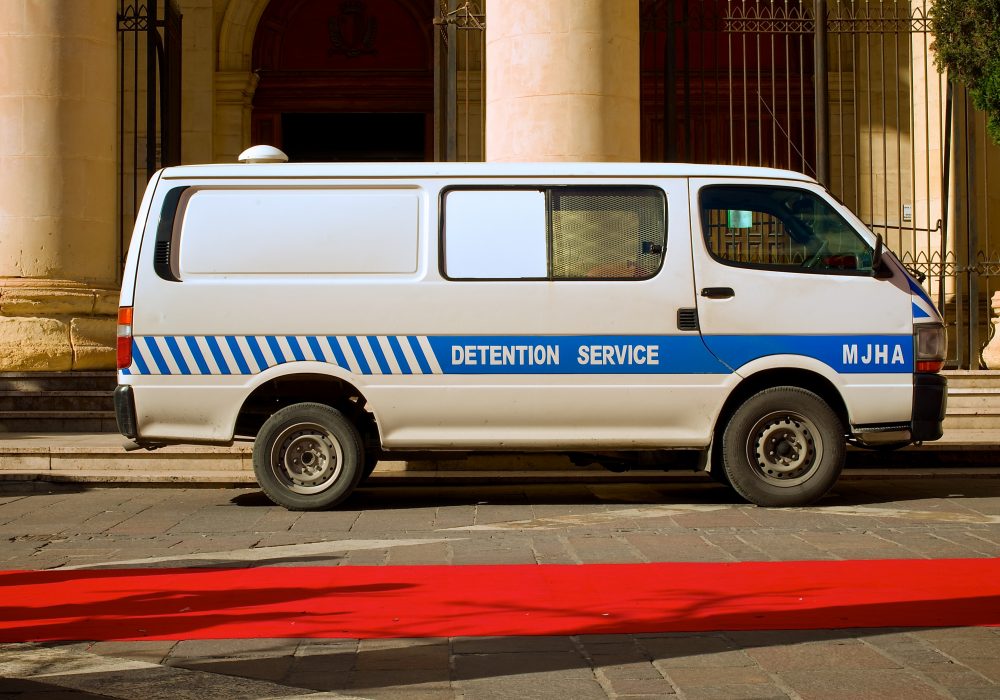Malta must take concrete steps to bring its detention regime in line with human rights standards. The European Court of Human Rights has said this in no unclear teams in a judgement we are celebrating as a victory for human rights in Malta!
Today, the Court delivered judgement in A.D. v. Malta. Together with JRS Malta, we had brought this case in March 2022 whilst AD was in detention and in collaboration with Advancing Child Right Strategic Litigation, ACRiSL.
The Court found a violation of Article 3 (prohibition of inhuman and degrading treatment), Article 5 (right to liberty) and Article 13 in conjunction with Article 3 (right to an effective remedy).
AD’s story
AD reached Malta in November 2021, after spending 10 days stranded at sea. 12 people had already died before the rescue, including children. Despite suffering from ill-health and exhaustion, AD and all the men were directly detained. Upon arrival, the applicant declared that he is a child and expressed the wish to apply for asylum.
Malta detained AD for a total of 225 days. He spent these days in various parts of Malta’s detention centres: China House and Safi Barracks.
He was only released once our lawyers got onto his case. After various attempts before the Immigration Appeals Board and Malta’s courts, we secured his release.

What did the Court say?
In a nutshell, the Human Right Court rubbished Malta’s detention system. It criticised the way it is imposed on migrants, often with no legal basis, and the living conditions in the centres. The Court also took time to underline that detention is really not the place for vulnerable people.
Specifically, the Court:
- said that detaining people at China House and Marsa IRC for ‘health reasons’ is illegal and must stop. We have been saying this ever since Malta decided to lock up people on the basis of an order from the Superintendent for Public Health. Despite our insistence with the Home Affairs and Health Ministries, the practice goes on to this very day.
- repeated the statement that it is an “incredible state of affairs” that the authorities are so disorganised that they do not hold proper records of who is being detained, and by whom.
- gave much importance to the applicant’s young age, stressing important principles relating to rights of the child. The Court was not impressed that AD was not informed of decisions affecting his situation, and commented that his guardian was not present at his age assessment interview. It underlined that AD was for too long detained with unrelated adults or wholly isolated from the world, questioning why no alternatives were even looked at by the authorities. In line with earlier judgements, the Court stressed that children should be treated as such and that children seeking asylum must be offered conditions that do not create for them “a situation of stress and anxiety“.
- relied on various reports to condemn the living conditions in Malta’s detention centres, in particular insofar as they affect vulnerable persons.
- repeated that Malta’s Constitutional proceedings are simply not good enough to guarantee the protection of human rights of detained persons.
…one week after the first assessment of 4 February 2022, instead of taking relevant action, the authorities considered that the applicant – a presumed minor, suffering from tuberculosis, PSTD and depression, who was in need of medical support and of an improvement of living conditions – was to move from a regime of “restriction of movement” to detention…
The Court finds it hard to consider that such a decision could have been taken with the best interests of the child constituting a primary consideration, and bearing in mind the minor’s general well-being and social development…
Para. 130
Now what?
Now it’s time for change. Not only did the Court declare this a win for AD. It also instructed Malta to make changes to its detention regime. These are measures Malta is legally required to respect.
With very harsh (but deserved) words, the Court is ordering Malta “to ensure a legal basis in domestic law for any such (health-based) detention, in conformity with the general principle of legal certainty.” Essentially, it is saying that what currently happens in China House and in Marsa IRC is illegal.
The Court also recommends that Malta “envisage taking the necessary general measures to ensure that the relevant law is effectively applied in practice and that vulnerable individuals are not detained, as well as to limit any necessary detention periods so that they remain connected to the ground of detention applicable in an immigration context, and that they are undertaken in places and conditions which are appropriate, bearing in mind that the measure is applicable not to those who have committed criminal offences but to aliens in an immigration context.”
This judgement is of course extremely welcome. It confirms what we have been saying for such a long time. It places the ball squarely in Malta’s court to get its act together.
If you’d like to support our human rights, including in bringing cases like this, don’t hesitate to reach out to us.
We would like to thank the following organisations for their engagement on this case: AIRE Centre (Advice on Individual Rights in Europe), the International Commission of Jurists (ICJ), The Global Campus of Human Rights and the European Council on Refugees and Exiles (ECRE).




